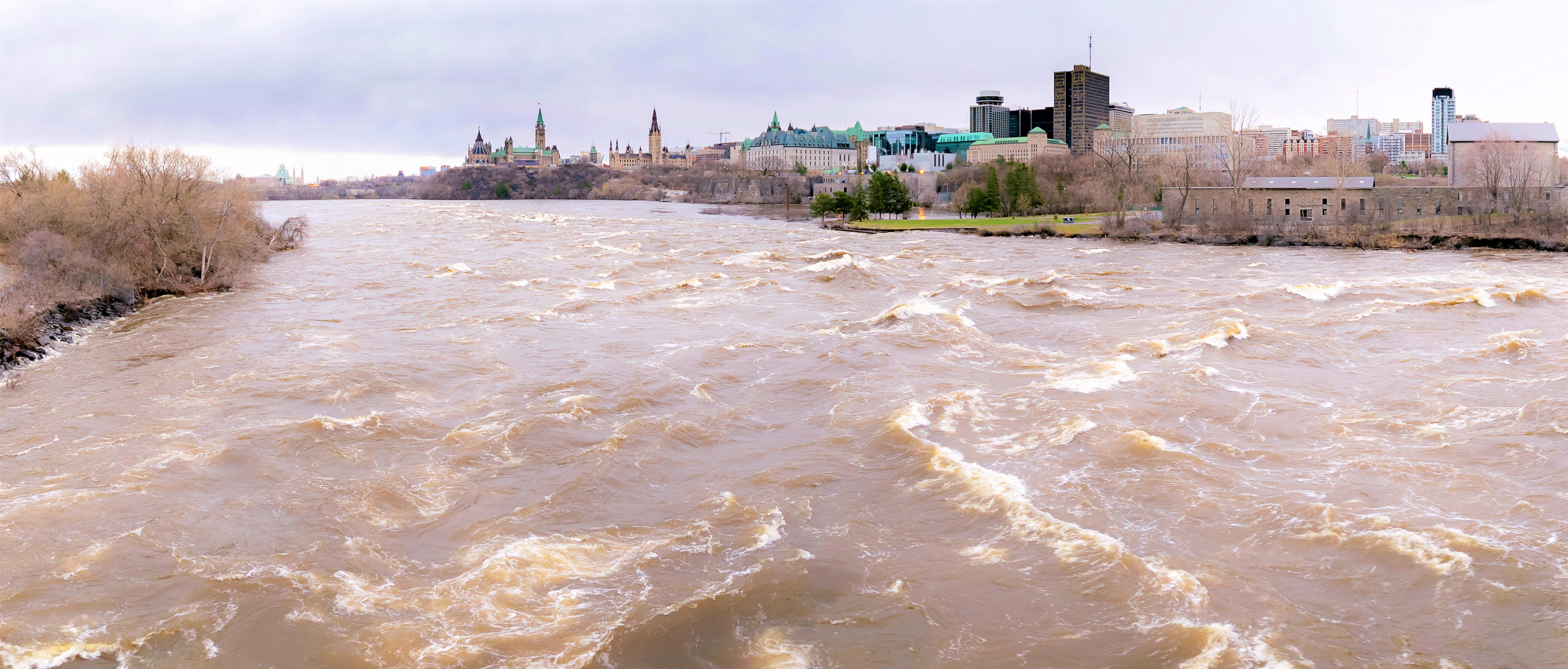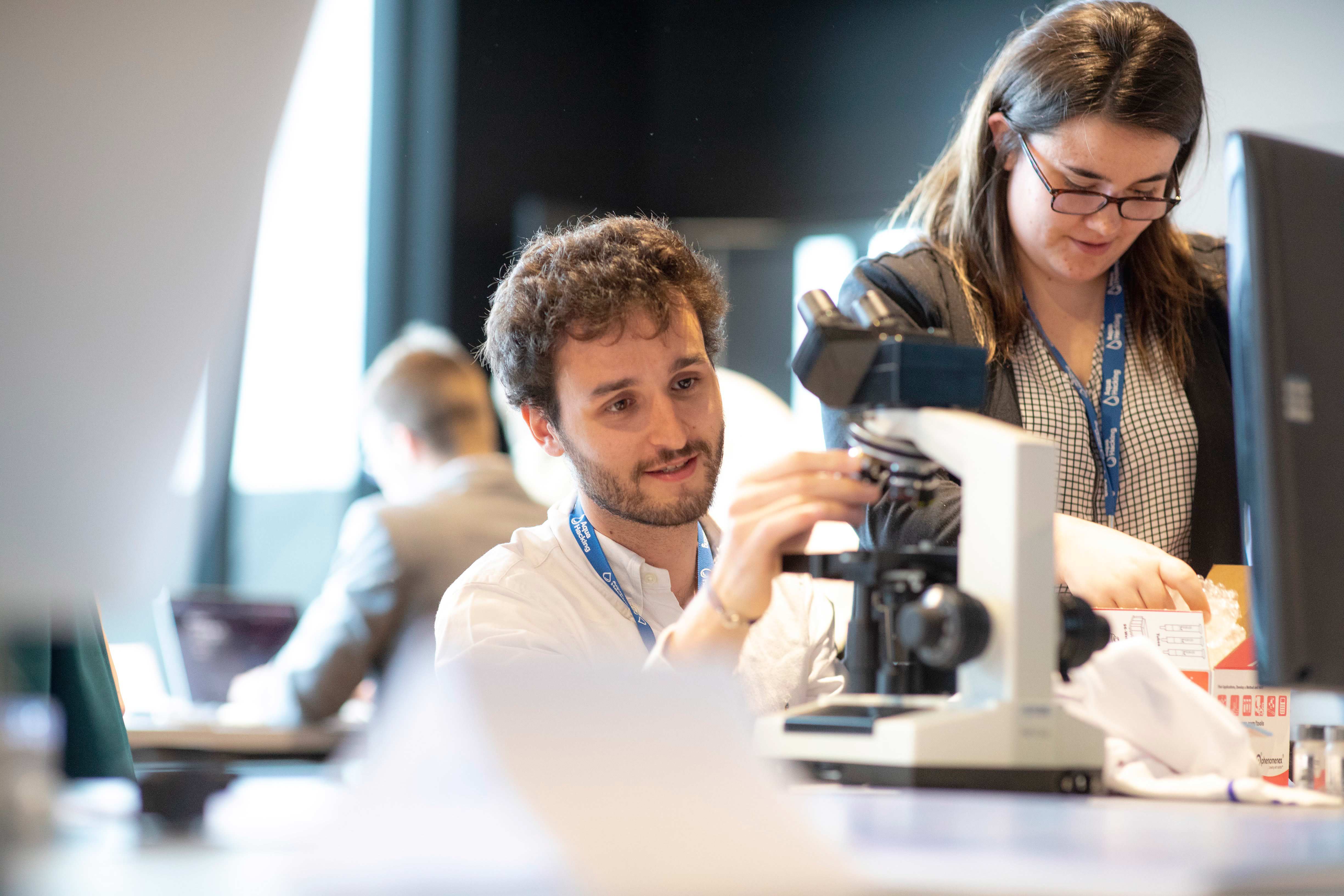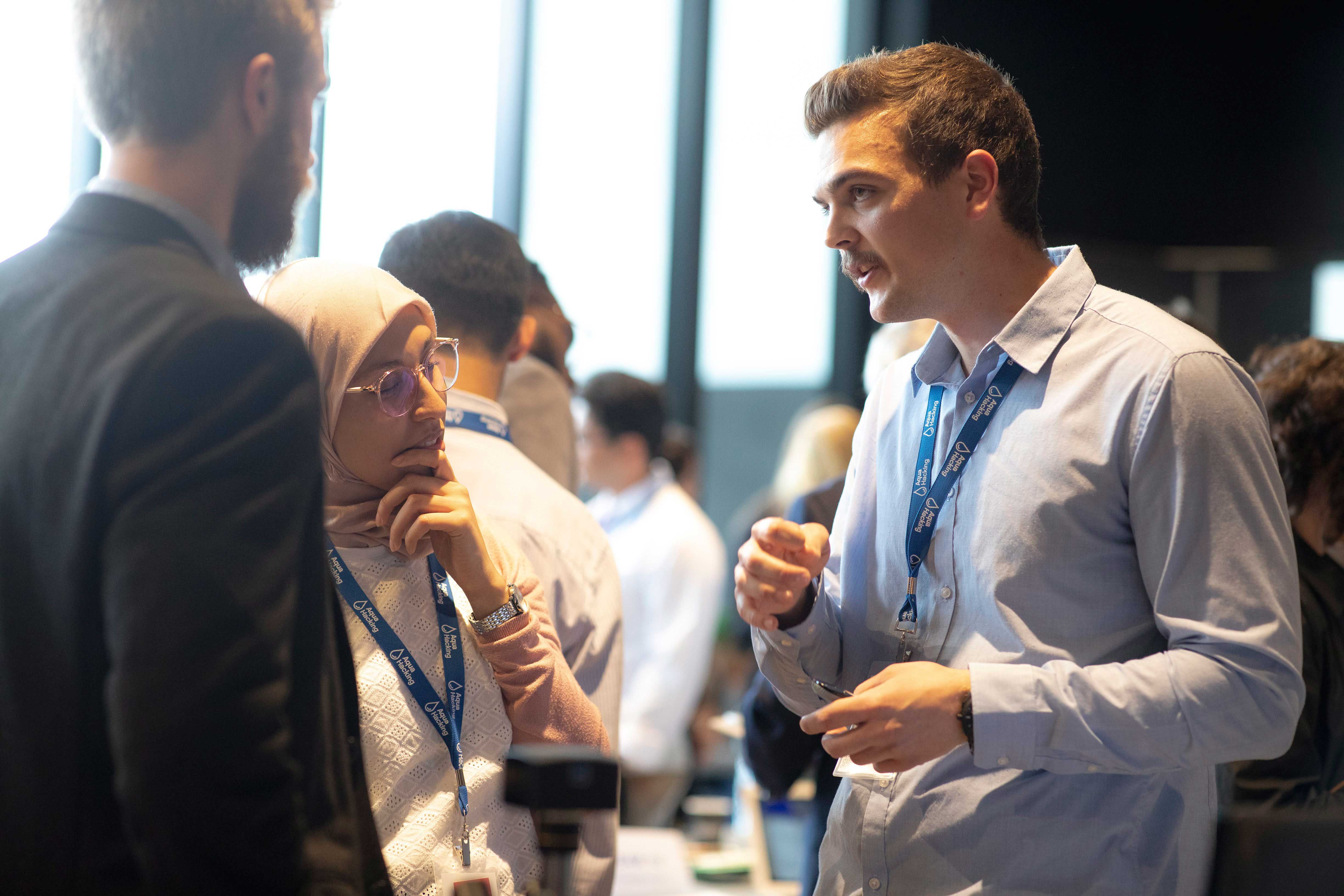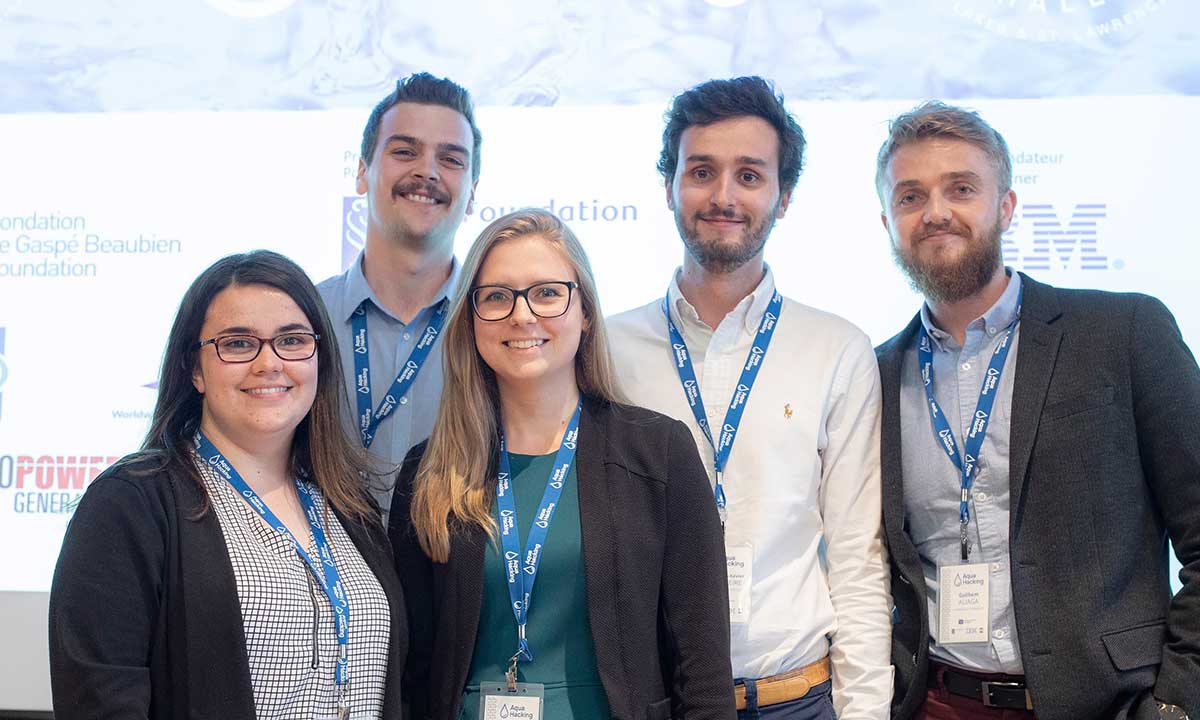The work of filling and stacking sandbags along the Ottawa River banks brought communities together, but Jean-Claude Chartrand, who volunteered in his parent’s community of Gatineau, wishes he’d had the opportunity to get to know their neighbours in a more pleasant way.
Chartrand’s parents live on the shore of the Ottawa River and were hit hard during the 2017 floods, so the community expected to get hit when this spring’s flood warnings began. “Commercial sandbags were delivered to the community in addition to everyone working around the clock to fill and stack bags,” Chartrand says.

Keeping the public informed about water conditions has been a challenge given the diversity of cities connected to the Ottawa River basin in both Eastern Ontario and Western Quebec.
At the 2018 AquaHacking competition, hosted by the de Gaspé Beaubien Foundation, the Ottawa Riverkeeper organization challenged interested hackers like Chartrand to find innovative ways for cities to publicly report water conditions like flooding in real-time.

AquaHackers Innovate to Inform the Public
Started in 2015, the national AquaHacking Challenge is an annual competition engaging the next generation of entrepreneurs in finding technological solutions for critical water issues in Canada. As part of the AquaHacking competition, Ottawa Riverkeeper’s challenge asked hackers to use technology in new ways to inform the public about water conditions.
In addition to being connected to the Ottawa River basin personally, Chartrand is a member of CLIN, one of this year’s AquaHacking finalist teams. Winning teams will gain a spot in a local incubator program and mentoring from professional engineers and other water experts. This year’s finalist teams’ solutions include:
- CLIN: CLIN’s mission is to reduce microplastic pollution by creating a filter for clothes dryers that effectively filters the microplastics that come from clothing.
- Salt-Ed: This team aims to provide more accurate depictions of the amount of road salt needed during winter months using weather sensors that can be affixed to snow plows. The team hopes to prevent over-salting while also making roads safer for drivers.
- Clean Nature: This team has created a computer model that uses real-time data to determine the amount of salt that needs to be applied to properly de-ice roads and walkways, without compromising driver or pedestrian safety.
- Droplets: Educating the public on the safety of public drinking water is what team Droplets aims to do. Team members have created an app that provides the public with water fountain location and purification information.
- Bello Solutions: Team Bello hopes to use technology to provide real-time information on water quality throughout a city’s municipal system.

Navi Brar, RBC Senior Manager, Social Impact says, “Initiatives like the AquaHacking competition are critical in helping identify, develop and scale tech solutions to the pressing environmental challenges facing us today.”
Jumpstarting Young Entrepreneurs
In addition to drawing much-needed awareness to Ottawa’s water issues, the AquaHacking competition gives university students the opportunity to compete for both prize money and spots in local incubators.
“Since our first AquaHacking Challenge, 12 of 16 solutions and teams are still active,” says Anne-Pascale Richardson, AquaHacking program manager. “When the teams realize that they have a business case in their hand with their solution, they move forward and jumpstart the entrepreneurial journey at the incubator.”

Municipalities can be overrun with proposals and solutions, so getting the attention of a decision-maker can be a tall order. It can help to have a well-known expert backing a project, which is another way the Ottawa Riverkeeper lends a hand.
With the help of the incubator and mentoring from Ottawa Riverkeeper, the winning teams are actively working to perfect their technologies with an eye toward implementing more solutions for reporting river conditions.
“By partnering with Ottawa Riverkeeper and de Gaspé Beaubien Foundation, we are empowering the next generation of environmental leaders,” says Brar. “Giving them access to subject matter experts and mentors who can provide guidance can help take their solutions to the next level.”
As to the future of CLIN, Chartrand says the team hopes to get large industrial cleaners to filter microplastics released during the drying process. From there, they’d like to create filters for home use, in hopes of further reducing the amount of plastic microparticles which enter Canada’s water systems.
Find out about how RBC supports the environment.
This article is intended as general information only and is not to be relied upon as constituting legal, financial or other professional advice. A professional advisor should be consulted regarding your specific situation. Information presented is believed to be factual and up-to-date but we do not guarantee its accuracy and it should not be regarded as a complete analysis of the subjects discussed. All expressions of opinion reflect the judgment of the authors as of the date of publication and are subject to change. No endorsement of any third parties or their advice, opinions, information, products or services is expressly given or implied by Royal Bank of Canada or any of its affiliates.



















